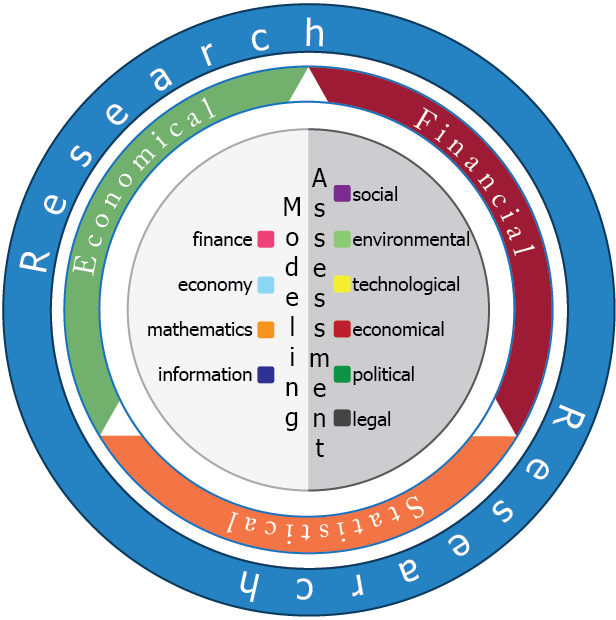Projetcs
Our ideas
Eurokleis’ success arises from the ability to rely on different scientific/technological skills that, combined synergistically, give productive and commercial value to the results of the research activity.
We can particularly count on the know-how in the field of economic, financial and organisational impacts originating from the evolution of technologies in different fields such as information & telecommunications, healthcare, transport, culture and finance.
Eurokleis is currently active in Horizon 2020 being the ideal partner both for horizontal and vertical project activities.
Horizontal competences and activities:
- Innovation management (technology transfer, business model, IPR management, start-up and spin-off etc.)
- Dissemination (diffusion of scientific results, events etc.)
- Economical, technological and social assessment of research and innovation investments

- Computational economics and finance
- Digital Social Innovation
- Digital cultural heritage
- Big data
- Media technologies
- Healthcare
- Transport modelling and information systems
- Blockchain
- Business intelligence and visualisation
- Research infrastructures
Projects underway
these are the projects which we are currently involved
![]()
The A-Plan project has developed a software product for analysing and evaluating entrepreneurial ideas in terms of innovation, economical and social impacts. A-Plan helps to manage the complexity of value propositions and provides immediate feedback to the entrepreneur.

![]()
La Scheda di Destinazione Lavorativa (SDL) is an idea developed by the Occupational Medicine Centre at the University of Rome “La Sapienza” in order to conduct a census of staff and to understand the actual work risks to which they are exposed. Eurokleis has developed the computerised version of the card that allows the acquisition of information.
Finished Projects
In the last few years we have worked and brought to an end various interesting research projects
![]()
JamToday is the first European network dedicated to the design of serious games, that is, games that are not aimed at simple entertainment but with specific educational purposes through the use of Game Jam.
Eurokleis has more specifically implemented a quantitative model in order to be able to evaluate the event and has created a reporting system to assess both the single event and the event history.

![]()
The TrendMiner project has developed an innovative way to process the flow of information generated by users on social media – Facebook, Twitter, Blog – in real time. This is so that they can predict on the one hand the stock market performance and on the other a popular sentiment on electoral candidates.

![]()
The LEILAS project aims to create an evolving research platform on business data, whether the data deals with products, business sectors or economics / finance. This is achieved by integrating location referencing in businesses on Italian territory and by developing algorithms that would allow the user to write down all the information he/she would need to establish brand reputation or a customer’s sentiment towards the company or the brands being handled.

![]()
The ERINA + project optimises a self-assessment methodology for the socio-economic evaluation of research infrastructures projects, which have already been tested with the previous ERINA.
More specifically ERINA + proposes a proactive self-assessment methodology for each specific project and a series of recommendations in order to make efficient and sustainable investments in electronic infrastructure directly related to the industry.

![]()
Through the SEQUOIA project, Eurokleis developed a self-assessment methodology to measure the potential socio-economic impact of 25 research projects funded by the European Commission. In particular, SEQUOIA maximises the impact of SaaS (Software as a Service) and IoS (Internet of Services) infrastructure projects through a specific socio-economic assessment methodology, while also facilitating the transfer of results to SMEs .
![]()
VENUS-C is a project funded under the 7th Framework Program of the European Commission with a view to develop, test and deploy a highly scalable and flexible cloud computing infrastructure. This is in order to enhance the activities of European researchers and SMEs in Europe .
The Venus-C platform is based on Windows Azure, the resources of the Royal Institute of Technology (KTH, Sweden), the Barcelona Supercomputing Center (BSC, Spain), Microsoft’s European data centres and the Engineering Group’s data centre.

![]()
The project, commissioned by the Education, Audiovisual and Culture Executive Agency (EACEA), carries out a careful analysis of the activities and needs of businesses operating in Europe in the cultural and creative sectors. The study analyses the “environmental” factors, in particular the regulatory aspects that affect the development of these enterprises, as well as access to finance, research and development. Within this study, Eurokleis played a key role in collecting and analysing quantitative data, both through statistical surveys and through the development, distribution and analysis of ad hoc questionnaires.

![]()
In 2008, Eurokleis participated in the ERINA study commissioned by the European Commission’s DG Information Society. The aim of this study was to identify and develop a methodology to measure the costs and benefits of using Research Infrastructure in three key areas (e-Health, e-Government, e-Learning).
To achieve its goal, the study developed a methodology for comparing the results of each of the three areas.












